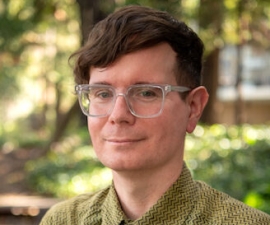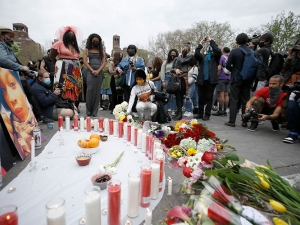

Research Bio
Eric A. Stanley is the Haas Distinguished Chair in LGBT Equity and an associate professor in the Department of Gender and Women’s Studies at the University of California, Berkeley where they are also affiliated with the Program in Critical Theory.
Eric’s first manuscript Atmospheres of Violence: Structuring Antagonism and the Trans/Queer Ungovernable (Duke 2021) argues racialized anti-trans/queer violence is foundational to, and not an aberration of, western modernity. Atmospheres of Violence was awarded the Sylvia Rivera Award in Transgender Studies from CLAGS. Eric is currently working on two other projects, the first is a study of nonsovereignty and radical hospitality through the ephemera of trans/queer insurgents organizing underground in the 1970s and 1980s. They are also starting a new project on architectures of attack and trans sociality, focusing on the Bay Area.
Along with Tourmaline and Johanna Burton, Eric edited the anthology Trap Door: Trans Cultural Production and the Politics of Visibility (Cambridge: MIT Press, 2017), which won the Publishing Triangle Award for Trans and Gender-Variant Literature and the John Leo & Dana Heller Award for Best Single Work, Anthology, Multi-Authored, or Edited Book in LGBTQ Studies from the Popular Culture Association. With Nat Smith, they edited Captive Genders: Trans Embodiment and the Prison Industrial Complex (AK Press 2011/15), which won the Prevention for a Safer Society Book Award.
In collaboration with Chris Vargas, Eric directed the films Criminal Queers (2019) and Homotopia (2008).
Research Expertise and Interest
critical prison studies, queer/trans social movements, anti-colonial feminism, gentrification, California housing market, critical theory


